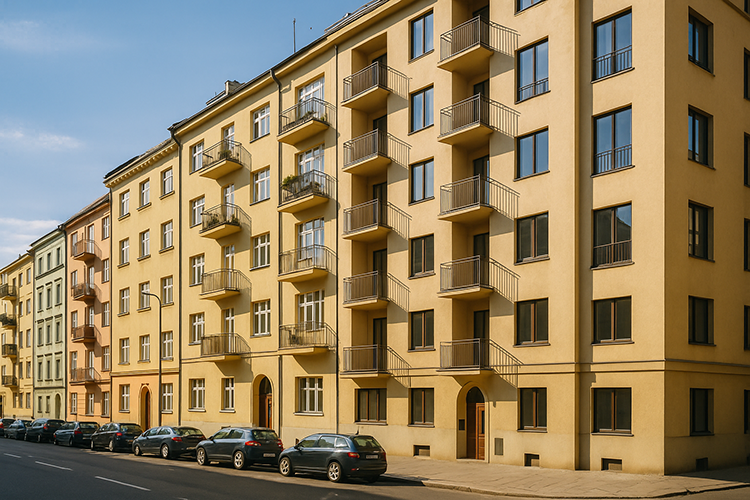Czech Rents Climb 15% as Autumn Demand Tightens Housing Market
Rental prices across the Czech Republic continued to rise sharply at the start of autumn, reflecting both persistent housing shortages and seasonal demand from students and returning tenants. According to a new market analysis, average rents in September reached roughly 368 Kč per square metre, about 15 percent higher than a year ago. Month on month, prices rose by just over one percent.
Analysts say the increase stems from a combination of factors — a steady inflow of new tenants after the summer holidays, limited availability of flats, and higher-quality properties entering the market. The pressure is most visible in university cities and commuter regions near Prague and Brno, where demand remains strongest.
In Prague, landlords are now asking an average of about 446 Kč per square metre, roughly 16 percent more than last September. The capital’s rental listings have fallen by around ten percent since early summer, intensifying competition for available units. Agents report that a typical listing in the city now attracts dozens of inquiries within days.
Rapid growth was also recorded in several regional centres. Rents in South Bohemia rose close to 30 percent compared with last year, partly because prices there had lagged earlier and are now catching up. The Olomouc Region followed with nearly the same pace, helped by an expanding supply of renovated apartments and new-builds. In Pardubice and Hradec Králové, the year-on-year rise exceeded 20 percent, though some analysts believe prices in eastern Bohemia may have reached a short-term peak.
While Prague remains the most expensive location, many households and students are shifting their searches to the Central Bohemian Region, where flats rent for about 308 Kč per square metre. Well-connected towns within commuting distance of the capital have become particularly sought after.
The data were compiled by the real estate platform Bezrealitky.cz, which tracks thousands of rental listings nationwide. Other professional market monitors, such as Deloitte’s rent index, also point to strong annual growth — though with some regional variation — and confirm that Czechia’s rental market remains one of the tightest in Central Europe.
Economists note that housing supply has not kept pace with population movements and new household formation. Although inflation has eased in other parts of the economy, rent growth continues to outstrip wage gains in many areas, keeping affordability under pressure.
With the new academic year underway and demand expected to remain high through the autumn, experts say a meaningful slowdown in rents is unlikely before early 2026, unless construction and renovation activity pick up.
Source: CTK and Bezrealitky.cz









